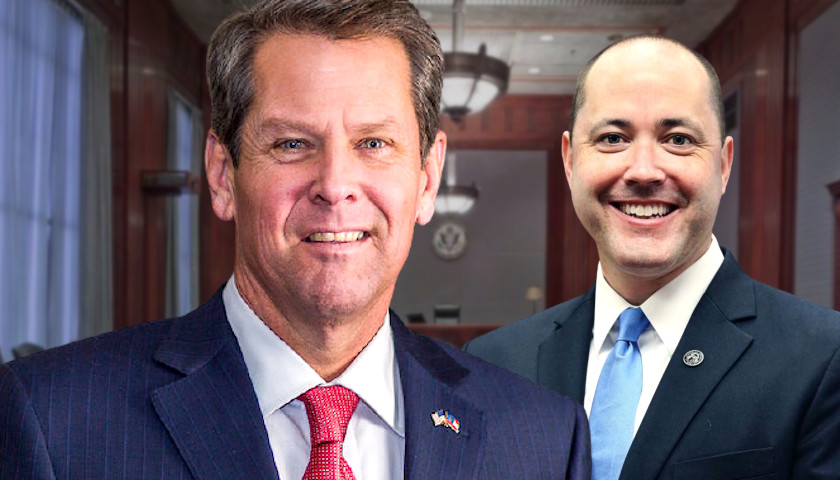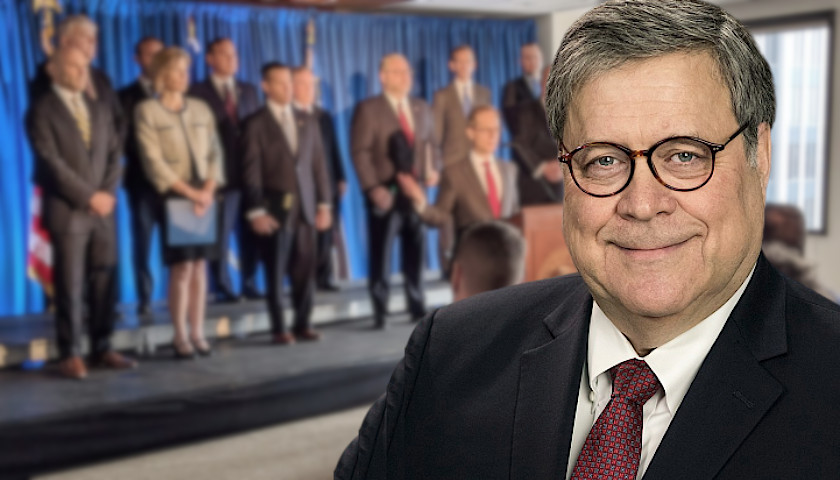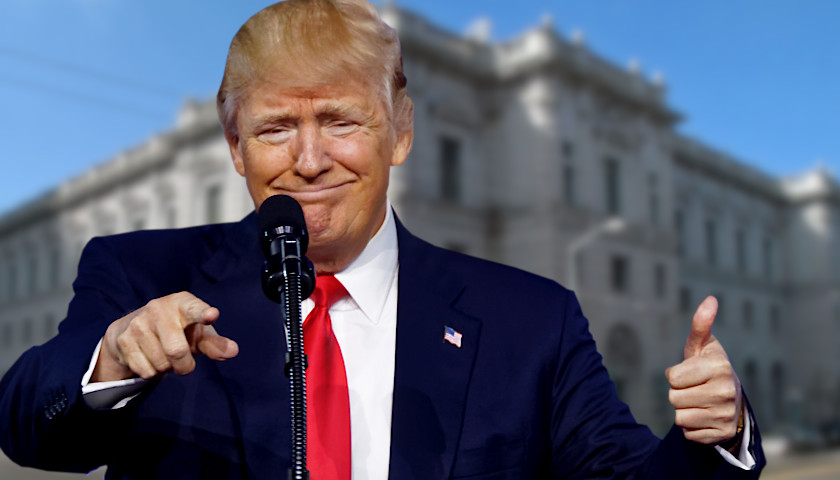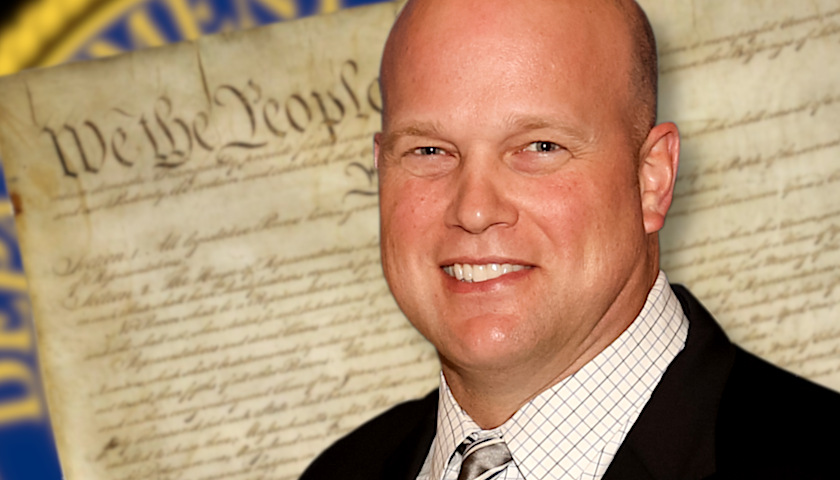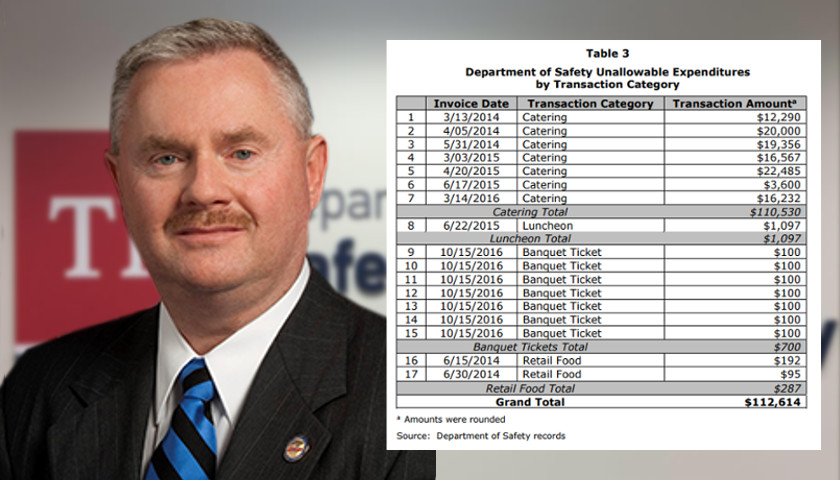Georgia officials have filed a motion to dismiss the U.S. Department of Justice’s (DOJ’s) lawsuit against the state’s new voter integrity law, Senate Bill 202. Gov. Brian Kemp and Attorney General Chris Carr this week released a statement and called the lawsuit “politically-charged” and said it seeks “to intrude into the State of Georgia’s constitutional authority to regulate the time, place, and manner of its elections.”
Read the full storyTag: U.S. Department of Justice
Nashville Man Sentenced to17 Years in Federal Prison for Drug Distribution and Firearms Violations
Federal officials have sentenced a Nashville man with a lengthy criminal history spanning two decades to 17 years in federal prison.
That man Timothy Lamont Page, 50, pleaded guilty in July to possession with intent to distribute crack cocaine, cocaine and heroin, and being a convicted felon in possession of a firearm.
Read the full storyMemphis Doctors Pay Huge Fine for Overbilling Taxpayers on Medicare
Various physicians in Memphis will pay more than $340,000 for allegedly overcharging the taxpayer-funded Medicare.
This, according to a press release that U.S. Department of Justice officials posted on their website this week.
Read the full storyFeds Bust 60 For Alleged Participation in Illegal Prescribing and Distributing of Opioids, Other Narcotics, As Well As Alleged Health Care Fraud
The U.S. Department of Justice on Wednesday announced a major multi-agency national bust against 60 people for their alleged participation in the illegal prescribing and distributing of opioids and other dangerous narcotics and for health care fraud schemes. The DOJ announcement is available here. The defendants are from 11 federal districts and include 31 doctors, seven pharmacists, eight nurse practitioners, and seven other licensed medical professionals, including Ohio. “The opioid epidemic is the deadliest drug crisis in American history, and Appalachia has suffered the consequences more than perhaps any other region,” Attorney General William P. Barr said. “But the Department of Justice is doing its part to help end this crisis. One of the Department’s most promising new initiatives is the Criminal Division’s Appalachian Regional Prescription Opioid Strike Force, which began its work in December. Just four months later, this team of federal agents and 14 prosecutors has charged 60 defendants for alleged crimes related to millions of prescription opioids. I am grateful to the Criminal Division, their U.S. Attorney partners, and to the members of the strike force for this outstanding work that holds the promise of saving many lives in Appalachian communities.” In the Appalachian Regional Prescription Opioid Strike Force’s Southern District…
Read the full storyFederal Subpoenas Issued In North Carolina 9th Congressional District Case
The Public Integrity Section of the United States Department of Justice has issued subpoenas for documents related to North Carolina’s 9th Congressional District. The subpoena sent to the state’s board of election requests “all documents related to the investigation of election irregularities affecting counties within the 9th Congressional District.” The Public Integrity Section (PIN) has “exclusive jurisdiction over allegations of criminal misconduct on the part of federal judges and also supervises the nationwide investigation and prosecution of election crimes.” Kim Strach, the Executive Director of the State Board of Elections, issued a statement on the subpoena: “We support the efforts of state and federal authorities to investigate and prosecute crimes against the elections process. State Board staff are compiling records responsive to the federal grand jury subpoena and are prepared to assist federal and state prosecutors in their investigations. We hope that prosecutions in these cases will help restore voters’ confidence in our elections and serve as a strong deterrent to future elections fraud.” A grand jury subpoena as also sent to Leslie McCrae Dowless, the man at the center of the absentee ballot controversy. Dowless was arrested and charged last month with three counts felonious obstruction of justice, two…
Read the full storyJC Bowman Commentary: Legislation That Hurts School Discipline
Lack of student discipline, inadequate administrative support, and lack of respect are frequently cited why teachers leave the profession. The continued barrage of top-down legislation by the Tennessee General Assembly does not help.
Read the full storyNinth Circuit Finally Hands Trump a Big Win Against Youth’s Global Warming Lawsuit
by Michael Bastasch The Trump administration’s battle against a global warming lawsuit brought by 21 youths will continue into 2019 after a federal court handed the government a big win over the holiday season. The Ninth Circuit Court of Appeals sided with the Department of Justice (DOJ) in a Dec. 26 ruling largely missed by major media outlets. The court granted DOJ’s petition for interlocutory appeal that decreases the chances of the climate lawsuit going to trial anytime soon. The three-judge Ninth Circuit panel is the very same one that in March 2018 ruled against Trump administration petitions for a writ of mandamus, which allows a higher court to overrule a lower court before a case is decided. Environmentalists handling the case on behalf of youth activists immediately filed a petition asking the District Court of Oregon to restart trial proceedings in light of the appeals court ruling. “The bottom line is, this case is ready for trial, and should not be held up by further appeals,” said Julia Olson, chief legal counsel and executive director of Our Children’s Trust, the activist group handling the climate lawsuit. “The government has used the power of their office and the depth…
Read the full storyCommentary: The U.S. Constitution Allows For The Appointment Of Temporarily ‘Acting’ Officials Without Senate Confirmation
In its Article II, Section 2, Clause 2, the United States Constitution provides that the President of the United States: …by and with the Advice and Consent of the Senate, shall appoint Ambassadors, other public Ministers and Consuls, Judges of the supreme Court, and all other Officers of the United States whose Appointments are not otherwise provided for, and which shall be established by Law…” This means that, by a simple majority vote of the 100-member U.S. Senate, the President may nominate — and the Senate may confirm — various appointees within the Executive branch and within the Judicial branch of the federal government. In the aftermath of the November 6, 2018, general election — and the Republican Party enjoying a net gain of three seats in the U.S. Senate — President Donald Trump should experience less difficulty, during the upcoming 116th Congress (2019-2020), with how his nominees are received in the nation’s highest legislative body, than had been the case during the 115th Congress. But not every appointment requires action by the U.S. Senate — regardless of whether that body is officially in session or is in recess between sessions. The Constitution’s Article II, Section 2, Clause 3, reads…
Read the full storyTennessee Department of Safety and Homeland Security Improperly Used Asset Forfeiture Funds, DOJ Says
The Tennessee Department of Safety and Homeland Security inappropriately used $112,614 in asset forfeiture funds on catering, a luncheon, banquet tickets and retail food, according to a report from the U.S. Department of Justice. The report released this week looked at expenses from 2014 through 2016. Through the DOJ’s Equitable Sharing Program, state and local law enforcement agencies directly involved in cases resulting in federal forfeiture can claim a portion of federally forfeited cash, property and proceeds. But guidelines restrict using the assets for law enforcement purposes only. The purchase of food and beverages is included on a list of unallowable expenses. “The use of equitable sharing funds to purchase catering, a luncheon, banquet tickets and retail food is contrary to the Equitable Sharing Guide and its goal of promoting and maintaining the integrity of the Equitable Sharing Program to merit public confidence and support,” the report notes. When the DOJ presented its findings to the state Department of Safety, its controller said he did not know food-related purchases were not allowed, according to the report. Other officials said they considered catering expenses to be in support of law enforcement activities. The DOJ report also noted that the state Department…
Read the full story
